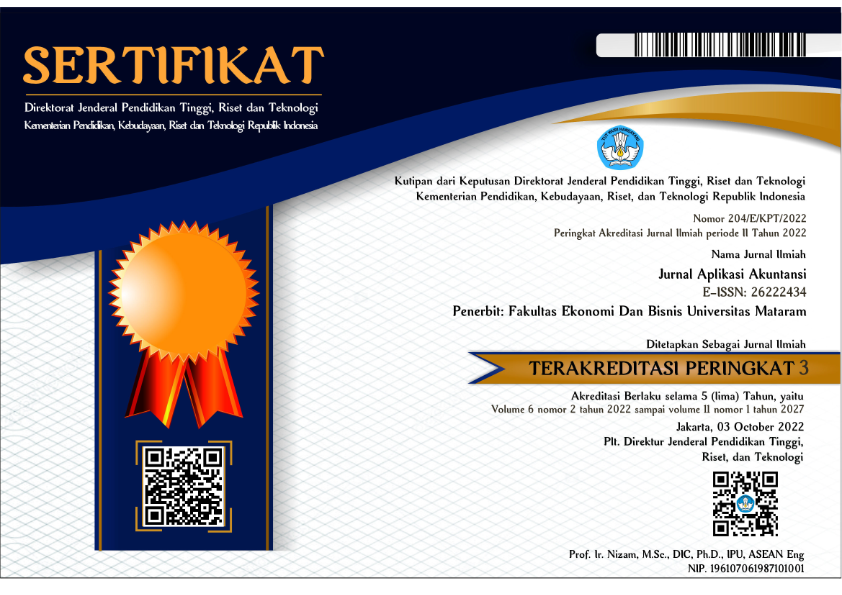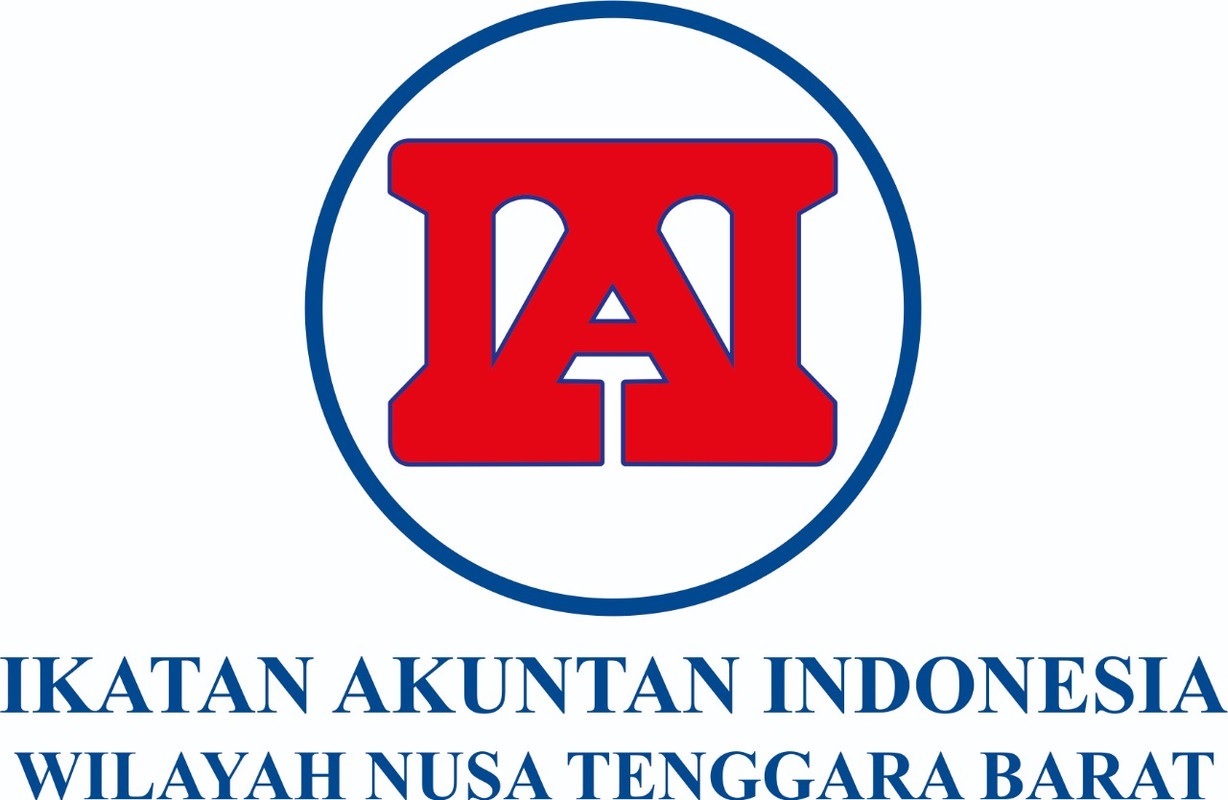CORPORATE SUSTAINABILITY COMMUNICATION OF GREEN AND NON-GREEN COMPANIES IN DIGITAL ERA
DOI:
https://doi.org/10.29303/jaa.v9i1.471Keywords:
Green Company, Social Media, Sustainability Communication, Sustainability ReportAbstract
This study aims to understand the corporate sustainability communication of green and non-green companies in Indonesia. This research examines 20 Indonesian companies divided into two subgroups of sample: green and non-green companies, which are classified according to their sustainability performance. The categorization indicator is obtained from CSRHub, a global database source aggregating Environmental, Social, and Governance (ESG) scores. The paper analyzes the implementation of formal communication channels and social media during two months (June-July 2023) as a novel digital communication channel at the stakeholder information strategy level. This study found green companies engaged in more active sustainability communication through formal and digital channels. In the formal communication, green companies routinely prepared standalone sustainability reports and annual reports reflecting sustainability values in each Board of directors' and commissioners' letters. In digital channels, green companies own social media accounts on many platforms to engage with stakeholders. Some of them have reflected their sustainability value publicly through the new media.
References
Adhariani, D., & du Toit, E. (2020). Readability of sustainability reports: evidence from Indonesia. Journal of Accounting in Emerging Economies, 10(4), 621–636. https://doi.org/10.1108/JAEE-10-2019-0194/FULL/PDF
Ali, I., Jiménez-Zarco, A. I., & Bicho, M. (2015). Using social media for CSR communication and engaging stakeholders. Developments in Corporate Governance and Responsibility, 7, 165–185. https://doi.org/10.1108/S2043-052320150000007010/FULL/XML
Aydoğmuş, M., Gülay, G., & Ergun, K. (2022). Impact of ESG performance on firm value and profitability. Borsa Istanbul Review, 22, S119–S127. https://doi.org/10.1016/J.BIR.2022.11.006
Bellucci, M., & Manetti, G. (2017). Facebook as a tool for supporting dialogic accounting? Evidence from large philanthropic foundations in the United States. Accounting, Auditing and Accountability Journal, 30(4), 874–905. https://doi.org/10.1108/AAAJ-07-2015-2122/FULL/PDF
Benitez, J., Ruiz, L., Castillo, A., & Llorens, J. (2020). How corporate social responsibility activities influence employer reputation: The role of social media capability. Decision Support Systems, 129, 113223. https://doi.org/10.1016/J.DSS.2019.113223
Bezemer, P. J., Peij, S., de Kruijs, L., & Maassen, G. (2014). How two-tier boards can be more effective. Corporate Governance (Bingley), 14(1), 15–31. https://doi.org/10.1108/CG-02-2013-0018/FULL/PDF
Büyüközkan, G., & Karabulut, Y. (2018). Sustainability performance evaluation: Literature review and future directions. Journal of Environmental Management, 217, 253–267. https://doi.org/10.1016/J.JENVMAN.2018.03.064
Cade, N. L. (2018). Corporate social media: How two-way disclosure channels influence investors. Accounting, Organizations and Society, 68–69, 63–79. https://doi.org/10.1016/J.AOS.2018.03.004
Christensen, H. B., Hail, L., & Leuz, C. (2021). Mandatory CSR and sustainability reporting: economic analysis and literature review. Review of Accounting Studies 2021 26:3, 26(3), 1176–1248. https://doi.org/10.1007/S11142-021-09609-5
Clément, A., Robinot, É., & Trespeuch, L. (2023). The use of ESG scores in academic literature: a systematic literature review. Journal of Enterprising Communities, ahead-of-print(ahead-of-print). https://doi.org/10.1108/JEC-10-2022-0147/FULL/PDF
Cortado, F. J., & Chalmeta, R. (2016). Use of social networks as a CSR communication tool. Cogent Business & Management, 3(1). https://doi.org/10.1080/23311975.2016.1187783
CSRHub. (2024). Frequently Asked Questions About ESG. https://www.csrhub.com/frequently-asked-questions-about-esg
DataReportal. (2023, February 9). Digital 2023: Indonesia. https://datareportal.com/reports/digital-2023-indonesia
Garcia, A. S., Mendes-Da-Silva, W., & Orsato, R. (2017). Sensitive industries produce better ESG performance: Evidence from emerging markets. Journal of Cleaner Production, 150, 135–147. https://doi.org/10.1016/J.JCLEPRO.2017.02.180
Grunig, J. E., & Grunig, L. A. (2008). Excellence Theory in Public Relations: Past, Present, and Future. Public Relations Research, 327–347. https://doi.org/10.1007/978-3-531-90918-9_22
Gunawan, J., Permatasari, P., & Fauzi, H. (2022). The evolution of sustainability reporting practices in Indonesia. Journal of Cleaner Production, 358, 131798. https://doi.org/10.1016/J.JCLEPRO.2022.131798
Gunawan, J., & Tin, S. (2019). The development of corporate social responsibility in accounting research: evidence from Indonesia. Social Responsibility Journal, 15(5), 671–688. https://doi.org/10.1108/SRJ-03-2018-0076
Hummel, K., & Jobst, D. (2023). An Overview of Corporate Sustainability Reporting Regulations in the European Union. SSRN Electronic Journal. https://doi.org/10.2139/SSRN.3978478
Jha, A. K., & Verma, N. K. (2023). Social Media Sustainability Communication: An Analysis of Firm Behaviour and Stakeholder Responses. Information Systems Frontiers, 25(2), 723–742. https://doi.org/10.1007/S10796-022-10257-6
Joe Waheed Sayyed, B., Erum Sherieff, S., & Gupta, R. (2021). New Technology: Impact on Green Consumerism via Social media and AI in Fashion Industry. 2021 International Conference on Advance Computing and Innovative Technologies in Engineering, ICACITE 2021, 320–326. https://doi.org/10.1109/ICACITE51222.2021.9404721
Kapiyangoda, K., & Gooneratne, T. (2021). Management accounting research in family businesses: a review of the status quo and future agenda. Journal of Accounting and Organizational Change, 17(3), 352–372. https://doi.org/10.1108/JAOC-10-2020-0164/FULL/PDF
Kaplan, A. M., & Haenlein, M. (2010). Users of the world, unite! The challenges and opportunities of Social Media. Business Horizons, 53(1), 59–68. https://doi.org/10.1016/J.BUSHOR.2009.09.003
KPMG. (2017). The Road Ahead: the KPMG Survey of Corporate Responsibility Reporting 2017. https://assets.kpmg.com/content/dam/kpmg/campaigns/csr/pdf/CSR_Reporting_2017.pdf
KPMG. (2022). Survey of Sustainability Reporting 2022. https://assets.kpmg.com/content/dam/kpmg/se/pdf/komm/2022/Global-Survey-of-Sustainability-Reporting-2022.pdf
Landi, S., Costantini, A., Fasan, M., & Bonazzi, M. (2022). Public engagement and dialogic accounting through social media during COVID-19 crisis: a missed opportunity? Accounting, Auditing and Accountability Journal, 35(1), 35–47. https://doi.org/10.1108/AAAJ-08-2020-4884/FULL/PDF
Lee, Y. C. (2017). Corporate Sustainable Development and Marketing Communications on Social Media: Fortune 500 Enterprises. Business Strategy and the Environment, 26(5), 569–583. https://doi.org/10.1002/BSE.1936
Lin, L., Hung, P. H., Chou, D. W., & Lai, C. W. (2019). Financial performance and corporate social responsibility: Empirical evidence from Taiwan. Asia Pacific Management Review, 24(1), 61–71. https://doi.org/10.1016/J.APMRV.2018.07.001
Luo, B., Sun, Y., Shen, J., & Xia, L. (2020). How does green advertising skepticism on social media affect consumer intention to purchase green products? Journal of Consumer Behaviour, 19(4), 371–381. https://doi.org/10.1002/CB.1818
Maddocks, J. (2011). Debate: Sustainability reporting: a missing piece of the charity-reporting jigsaw. Public Money and Management, 31(3), 157–158. https://doi.org/10.1080/09540962.2011.573222
Manetti, G., Bellucci, M., & Oliva, S. (2021). Unpacking dialogic accounting: a systematic literature review and research agenda. Accounting, Auditing and Accountability Journal, 34(9), 250–283. https://doi.org/10.1108/AAAJ-08-2020-4736/FULL/PDF
Mion, G., & Adaui, C. R. L. (2019). Mandatory Nonfinancial Disclosure and Its Consequences on the Sustainability Reporting Quality of Italian and German Companies. Sustainability 2019, Vol. 11, Page 4612, 11(17), 4612. https://doi.org/10.3390/SU11174612
Morsing, M., & Schultz, M. (2006). Corporate social responsibility communication: stakeholder information, response and involvement strategies. Business Ethics: A European Review, 15(4), 323–338. https://doi.org/10.1111/J.1467-8608.2006.00460.X
Nwagbara, U., & Reid, P. (2013). Corporate Social Responsibility Communication in the Age of New Media: Towards the Logic of Sustainability Communication. Review of International Comparative Management, 14(3), 400–414. https://ideas.repec.org/a/rom/rmcimn/v14y2013i3p400-414.html
Qian, W., Tilt, C., & Belal, A. (2021). Social and environmental accounting in developing countries: contextual challenges and insights. Accounting, Auditing and Accountability Journal, 34(5), 1021–1050. https://doi.org/10.1108/AAAJ-03-2021-5172/FULL/PDF
Ramananda, D., & Atahau, A. D. R. (2020). Corporate social disclosure through social media: an exploratory study. Journal of Applied Accounting Research, 21(2), 265–281. https://doi.org/10.1108/JAAR-12-2018-0189/FULL/PDF
Reilly, A. H., & Hynan, K. A. (2014). Corporate communication, sustainability, and social media: It's not easy (really) being green. Business Horizons, 57(6), 747–758. https://doi.org/10.1016/J.BUSHOR.2014.07.008
SEC. (2013, April 2). SEC Says Social Media OK for Company Announcements if Investors Are Alerted. https://www.sec.gov/news/press-release/2013-2013-51htm
Signitzer, B., & Prexl, A. (2007). Corporate Sustainability Communications: Aspects of Theory and Professionalization. Journal of Public Relations Research, 20(1), 1–19. https://doi.org/10.1080/10627260701726996
Silva, S., Nuzum, A. K., & Schaltegger, S. (2019). Stakeholder expectations on sustainability performance measurement and assessment. A systematic literature review. Journal of Cleaner Production, 217, 204–215. https://doi.org/10.1016/J.JCLEPRO.2019.01.203
Soytas, M. A., Denizel, M., & Durak Usar, D. (2019). Addressing endogeneity in the causal relationship between sustainability and financial performance. International Journal of Production Economics, 210, 56–71. https://doi.org/10.1016/J.IJPE.2019.01.016
Tench, R., & Yeomans, L. (2006). Exploring public relations. FT Prentice Hall. https://books.google.com/books/about/Exploring_Public_Relations.html?hl=id&id=7qUpnE3Ayj4C
Verk, N., Golob, U., & Podnar, K. (2021). A Dynamic Review of the Emergence of Corporate Social Responsibility Communication. Journal of Business Ethics, 168(3), 491–515. https://doi.org/10.1007/S10551-019-04232-6/METRICS
Vogler, D., & Eisenegger, M. (2020). CSR Communication, Corporate Reputation, and the Role of the News Media as an Agenda-Setter in the Digital Age. Https://Doi.Org/10.1177/0007650320928969, 60(8), 1957–1986. https://doi.org/10.1177/0007650320928969
Downloads
Published
How to Cite
Issue
Section
License
Copyright (c) 2024 Sintia Farach Dhiba, Dianne Frisko Koan

This work is licensed under a Creative Commons Attribution-NonCommercial-ShareAlike 4.0 International License.









